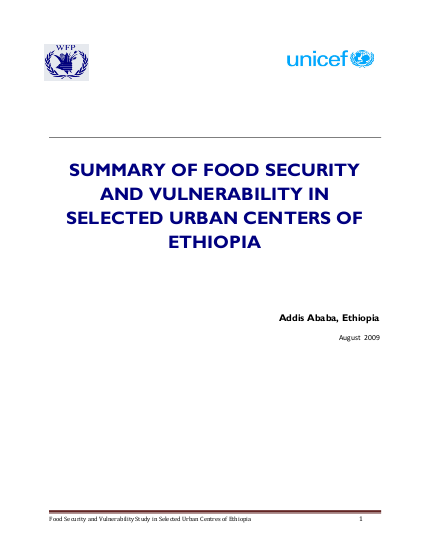
The food security and vulnerability study for urban Ethiopia has largely been necessitated by the new increased food insecurity stemming largely from the global economic downturn and high food prices, which has been translated to teh country partly through high inflation rates. The impact of inflation has been one key element that has resulted in increased food insecurity in urban areas. The prices of cereals have increased bymore than 100% since mid 2005 when the country faced spiral price increases. The 'new emergency' facing the urban poor is a result of the rapid food price increases resultsd in the Government initiated an urban grain market stablizaton programme in 2007. This urban study analyses the impact of the price increases on food security status from the conventional lenses of food availablity, access and absorption. Availability in urban settings is largely a function of market forces whilst access is determined by the purchasing power and absorption is a function of helath, sanitation and hygiene.
Resource collections
- Topics
- UN Habitat - Urban Response Collection
- Urban Response - Urban Crisis Preparedness and Risk Reduction
- Urban Response Collection - Community Engagement and Social Cohesion
- Urban Response Collection - Economic Recovery
- Urban Response Collection - Environment and Climate Change
- Urban Response Collection - Housing, Land and Property
- Urban Response Collection - Urban Crisis Response, Recovery and Reconstruction
- Urban Response Collection - Urban Resilience